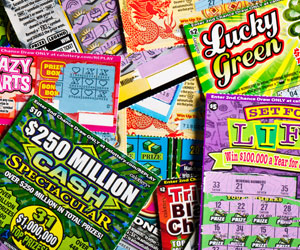Narrow Misses Can Propel Us Toward Other Rewards and Goals
Whether it’s being outbid at the last second in an online auction or missing the winning lottery number by one digit, we often come so close to something we can “almost taste it” only to lose out in the end. These “near wins” may actually boost our motivation to achieve other wins, leading us to pursue totally unrelated rewards, according to new research in Psychological Science, a journal of the Association for Psychological Science.
“Our research suggests that at least in some cases, losing has positive power. While we often think of motivation as being targeted to a specific reward or goal, these findings support the notion that motivation is like energy and reward is like direction — once this motivational energy is activated, it leads an individual to seek out a broad range of goals and rewards,” says lead researcher Monica Wadhwa of INSEAD.
 While it may seem like losing might put a damper on motivation, Wadhwa and co-author JeeHye Christine Kim hypothesized that losing out by only a narrow margin might have the opposite effect. A near win, they speculated, intensifies but doesn’t satisfy our motivational state, and so the drive to win is extended to the next task or goal we encounter.
While it may seem like losing might put a damper on motivation, Wadhwa and co-author JeeHye Christine Kim hypothesized that losing out by only a narrow margin might have the opposite effect. A near win, they speculated, intensifies but doesn’t satisfy our motivational state, and so the drive to win is extended to the next task or goal we encounter.
In one study, the researchers recruited 50 undergraduate students to evaluate a phone game that was supposedly in development.
In the game, students saw a grid of 16 tiles; half of the tiles covered a rock and half of the tiles covered a diamond. The goal of the game was to click on the tiles one by one to find 8 diamonds without uncovering a single rock. What the students didn’t know was that the game was carefully rigged by the experimenters. Some of the students were set up to experience a near win, uncovering 7 diamonds in a row only to uncover a rock on their final tile. Another group of students was also set up to uncover 7 diamonds and 1 rock, but this time the rock was uncovered on the second click; thus, these students had no anticipation of winning after they turned over the second tile.
After playing, the participants completed surveys evaluating the game and were asked to drop the surveys off at a booth at the end of the hallway, where they could pick up a chocolate bar as a thank-you gift.
The researchers surreptitiously recorded how long it took the students to walk to the second booth — they wanted to see if a near miss in the game might influence how eager participants were to get to the second reward, the chocolate bar.
The results were clear: Students who lost the game on the last tile walked significantly faster, reaching the booth about 12 seconds sooner, than those who lost the game on the second tile.
And the near-win effect was confirmed in another, real-world experiment. Shoppers who had near wins with scratch-off lottery tickets handed out next to a store in a shopping mall subsequently spent more money in the store than those who had clearly lost or clearly won.
Interestingly, the findings indicate that a near win may actually provide a stronger motivational boost than an actual win.
While this research could help explain our reward-seeking behavior in a variety of real-life situations, it has specific applications in sales and marketing:
“The current research suggests that managers who want to motivate their salespeople to perform better should think about giving feedback that highlights the individual’s performance compared to someone only slightly better,” Wadhwa explains. “It also impacts marketers who want to design effective promotions — our field study shows that nearly winning a lottery is better than clearly losing or winning.”
The researchers plan to delve deeper into the near-win effect, exploring its potential negative side and how it relates to brain’s dopamine system, which is thought to underlie reward processing.





APS regularly opens certain online articles for discussion on our website. Effective February 2021, you must be a logged-in APS member to post comments. By posting a comment, you agree to our Community Guidelines and the display of your profile information, including your name and affiliation. Any opinions, findings, conclusions, or recommendations present in article comments are those of the writers and do not necessarily reflect the views of APS or the article’s author. For more information, please see our Community Guidelines.
Please login with your APS account to comment.